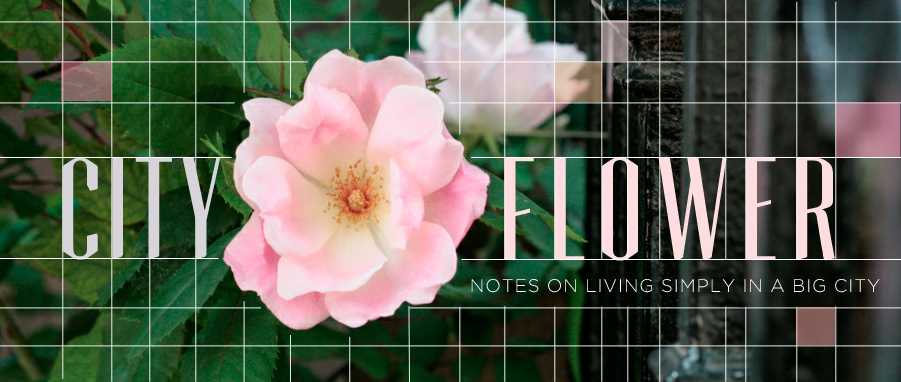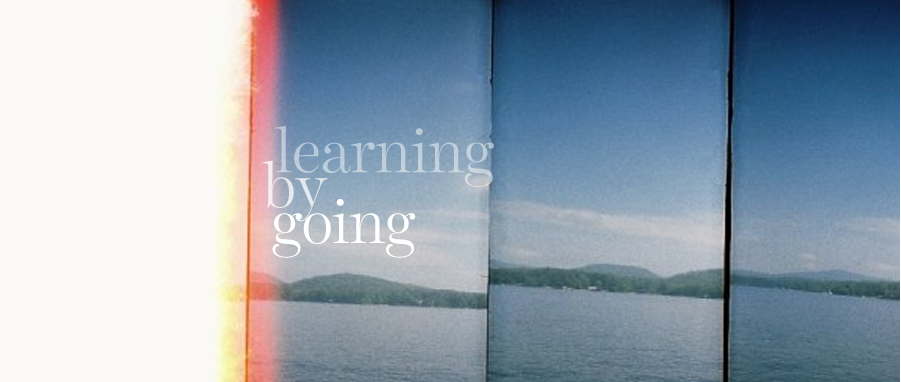Field trips, recess at the park sprinklers, warm weather and bag lunches are all signs that my son's first academic year is drawing to a close. This morning the parent association held one last breakfast and a special conversation with parents and the directors of the upper and lower schools. I felt pretty nostalgic as I climbed up the windy staircase to the music room remembering all the special memories that make up my son's first year here: the first day of school jitters, his first tooth falling out at recess, the numerous play dates with new friends from school, a weekend caring for two ducklings, and the class home visit. I engaged in every moment possible of his first year in the 4-5s class as if I was re-visiting my own first year in kindergarten. Yet, there is something very momentous about this first year that goes beyond the milestones of the 4-5s curriculum. In this same year, my son and I also just about complete one year as a family together. So in reflection on the past year and the year's struggles, accomplishments, fears, joys and risk taking, I write this brief letter to my son, Diego. Dear Diego,
A year ago today, I sat in my office anxious, scared and missing you deeply. You see, your papi and I had separated, and I moved back to New York City to take the big job that would provide for you. Remember when you lived with him in the apartment so you could stay at the JCC preschool last year? Well in that time, I rented a room to save enough to secure the apartment we call home today. In those painful and lonely seven months, I missed you every day. At any moment whether I was at work, on the bus or in the grocery store, tears would stream down my face as I questioned whether I had made the right choice to leave you and miss out on the little four year old child you were growing into. I missed your last tot Shabbat, I missed your end of the year preschool musical production and the parent committee meetings, and all the little moments in between -- but I did it anyway for us.
It is true I doubted myself every day for those 198 days without you. But today I write this letter to tell you it was the right choice at the right time. You know why I know this? Because I see you and me today and we have grown tremendously with a sense of independence and interdependence in our new home, community and life. The first few months in our home you were afraid to sleep alone in your new room and you missed your father. I comforted you and slept next to you to assure you of my love, trust and security. You cried daily at drop off at your new summer school program missing the rhythm and routine of the JCC; but each day I came to pick you up, I found you smiling. We took adventures over the summer on the subway to parks with sprinklers and neighborhood stores. By fall, you began a new school less fearful and more certain of yourself and your surroundings. You no longer cried at drop off and came home tired from a hard day of play in the 4-5s class. I marveled at your ease in adapting to our familial changes and your resiliency, but this is not to say we did not have our challenging moments. You challenged me daily for months about wanting to live with your father and not with me. Our biggest challenge was your hospitalization on your fifth birthday for a severe asthma attack postponing the birthday party you were counting down the days for. You rebounded quickly and we celebrated weeks later at Wiggles and Giggles with all your friends and loved ones. Onto the holiday celebrations of November and December, you traveled back and forth from Virginia to New York splitting your time over the breaks to enjoy the customs and traditions from your multicultural parentage. By the New Year, you became a pro at your school routine and would inform me daily of your after school activities and which buses and trains we should take in the morning to school. I marveled at seeing you become so confident and alive in your environs. Into spring, we began cooking together, painting together, and going to tee ball practice together which has resulted in some of the best memories this year. I think your proudest moment was when you led three classmates to our home traveling on two trains and a bus for the annual class home visit. This very milestone in your 4-5s class allowed you to share with pride your culture, family and home life with your classmates. We enjoyed eating apples, grapes and crackers, touring your room, creating a collaborative art piece on the chalk board, break dancing to You Spin me Round by the Chipmunks, and your favorite part -- jumping on my bed.
I remind you of all of this mi niño lindo, so you never forget how much this year has meant to me after spending what seemed like eternity without you. I most recently threw out the calendar I had meticulously crossed off each day that passed in your absence. I held onto it like a medal of honor because I needed that visualization so I could see the progress I was making toward having you back in my life. And now, I can say goodbye to that marked up and wrinkled calendar and those 198 days without you. Today I proudly celebrate the many more days and years I have with you.
I hope when you read this letter one day, you will begin to understand and feel through my words the depth of love I have for you.
Te adoro y te amo, mi hijo lindo y querido.
Tu mami para siempre,
Judy.

































